Podcast: Wisden’s men’s Test team of the decade

As part of Wisden’s Decade in Review, Lawrence Booth, Jo Harman, John Stern and Phil Walker join Yas Rana to pick out the men’s Test team of the decade.
For the full discussion, debate, and justification of why our panel picked those who they picked and didn’t select others, listen to the final special in the Wisden Cricket Weekly Podcast’s Decade in Review series below. It’s also available to listen to on the Podcast App and Spotify:
Alastair Cook
111 Tests, 8818 runs, average 46.41, HS: 294 (since 2010)
John Stern: Twelve hundreds away from home is just exceptional.
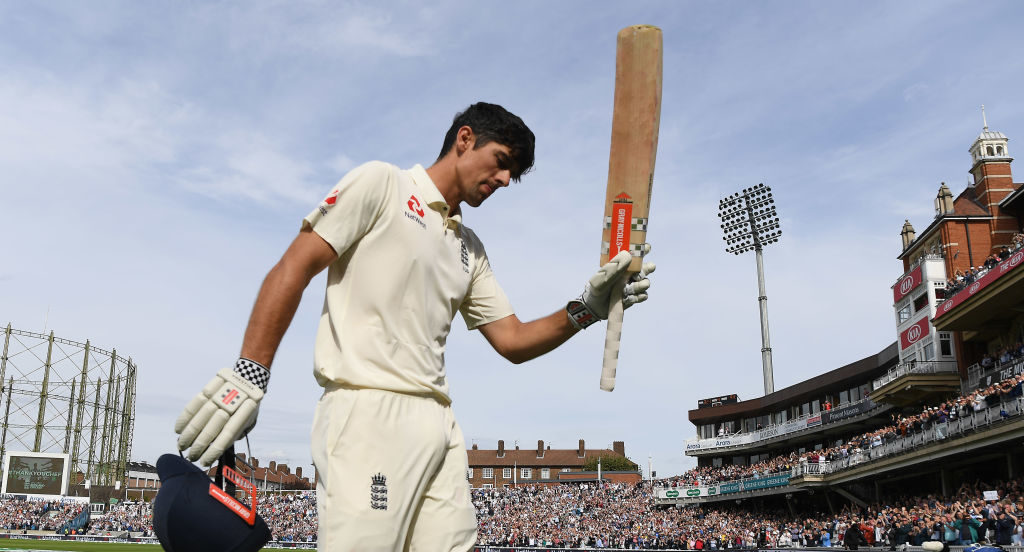
Cook retired from Test cricket in 2018, scoring 147 against India at The Oval in his final innings
David Warner
82 Tests, 7009 runs, average 48.33, HS: 335*
Jo Harman: He is inescapably a player of the decade, he has been talked about almost as much as any other cricketer bar Kohli, Dhoni and perhaps a couple of others. That was in the back of my mind when I was considering players for this.
Lawrence Booth: He’s also got this strike rate of 74 nearly, which is pretty incredible. Look at the top run-scorers among openers for the decade, Sehwag is 87, kind of in a league of his own, but then Warner is next and there’s a big gap then to pretty much everyone else.
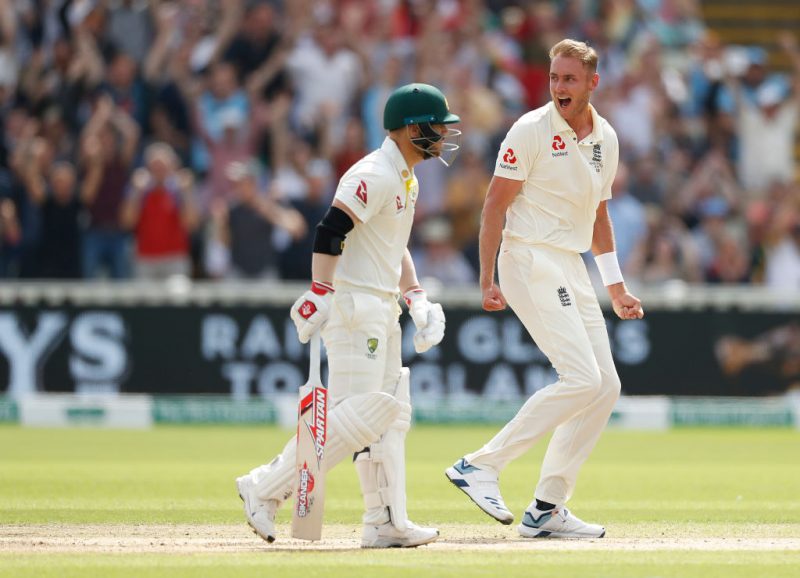
Warner endured a torrid Ashes campaign in 2019, but bounced back with a record-breaking 335* against Pakistan at home
Kumar Sangakkara
46 Tests, 4851 runs, average 61.40, HS: 319
LB: I think Sangakarra, of the players I’ve chosen, has the best cricket brain. I think he walks in as a batsman.
Phil Walker: He bats at three in my team, partly because at The Oval here, and my memory is short and broadly broken, I just remember watching him bat at three and strumming it round for the last two or three years [for Surrey]. He slips in there at first drop for me.
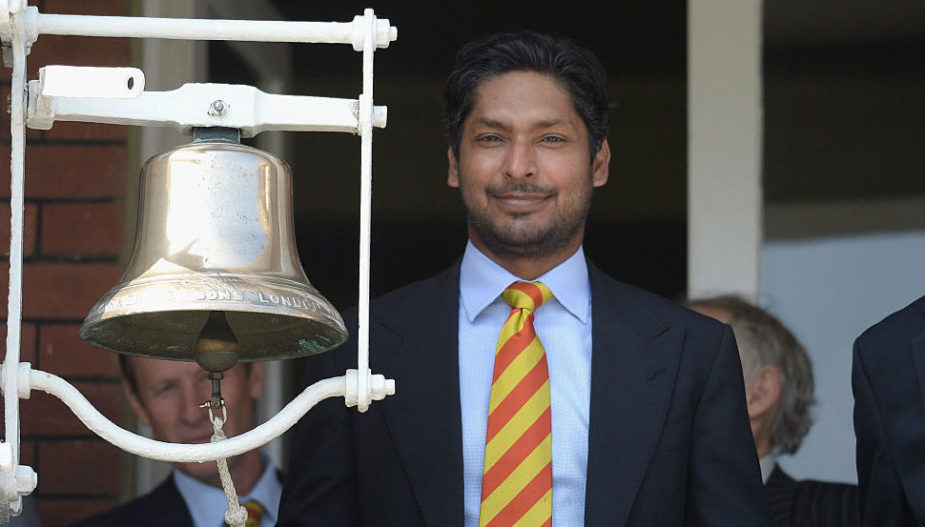
Sangakkara became MCC President in 2019, the first non-Brit to hold the role
Steve Smith
71 Tests, 7072 runs, average 63.14, HS: 239
PW: Statistically there’s Smith and then there’s the rest.
LB: He’s probably the best since Bradman isn’t he? I think. The way he bestrode the last Ashes like a colossus. ‘He’s out’, that phrase used to appear on newspaper billboards for Bradman and could equally have applied to Smith last summer.
JS: Fourteen hundreds away from home as well.
PW: Including one or two classics as well, that innings at Pune, 109 on a raging turner.
JS: There’s not a dispute about this guy gets in the team unless you’re being absurdly moralistic.
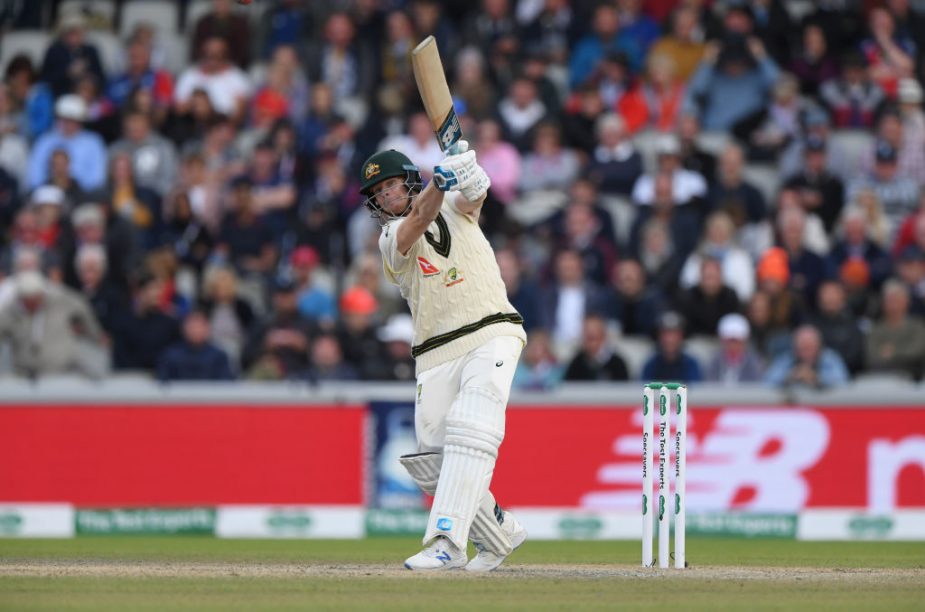
Steve Smith’s Test batting average of 63.14 is second only to The Don for players who have batted in 20 or more innings
Virat Kohli (captain)
84 Tests, 7202 runs, average 54.97, HS: 254*
LB: In 2014, he tours England and averages 13, and his Test average dips below 40. Everyone’s wondering whether he’s ever going to quite crack red-ball cricket in the way he has done white-ball cricket, the greatest chaser in the history of the white-ball game. And then he embarks on this career changing period, comes back to England averages 54-55 in 2018, conquers his demons, doesn’t get out to Jimmy Anderson. And that’s the final box he needs to tick on his CV, he is now the complete batsman in all conditions. He has just been absolutely pre-eminent since then.
JS: If you’re talking about the intangibles as well, about style and presence, and impact on the game, he’s done it across all formats. Absolute shoo-in.
PW: Not only is he a master, he’s a great frontman for the modern game.
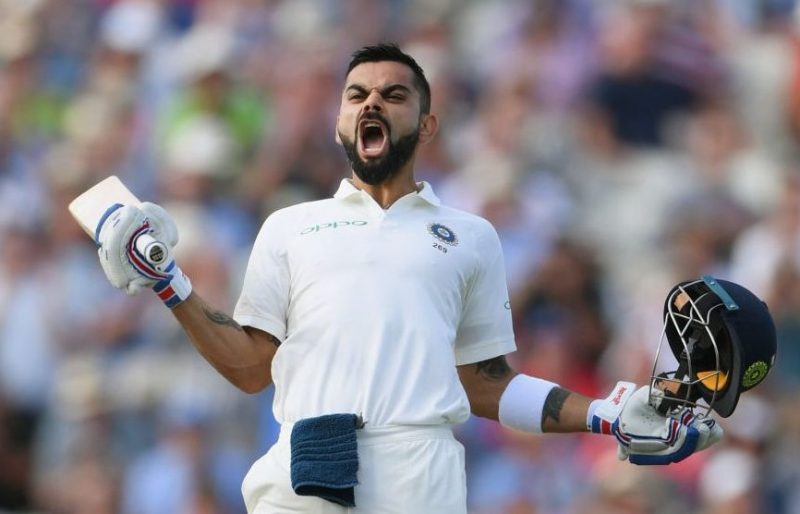
Kohli has won 33 of his 53 Tests since becoming India captain in 2014
Ben Stokes
59 Tests, 3738 runs, average 35.94, HS: 258 | 137 wickets, average 33.45, BBI: 6-22
JH: I did consider Shakib, but even though he’s got a better batting average and a better bowling average than Stokes, I think Stokes is that match-winner you want at six or seven.
LB: He’s not just a fourth seamer, he’s a rabble-rouser, and a brilliant fielder, and can turn the game with the bat.
“As the gun-crack echoed around a hushed stadium, he raised his arms aloft before anyone else had absorbed what had happened, the only person in the world aware of just quite what he’d done.” | @Ben_Wisden https://t.co/6gXk6D10P7
— Wisden (@WisdenCricket) December 18, 2019
AB de Villiers
60 Tests, 5059 runs, average 57.48, HS: 278* | 80 catches, 4 stumpings
JH: He scored seven hundreds as a wicketkeeper which is as many as any other wicketkeeper this decade.
LB: I really wanted to get him in and then I saw he had kept wicket in 22 Tests, and I thought ‘that’s perfect’. We’ve now got seven serious batsmen.
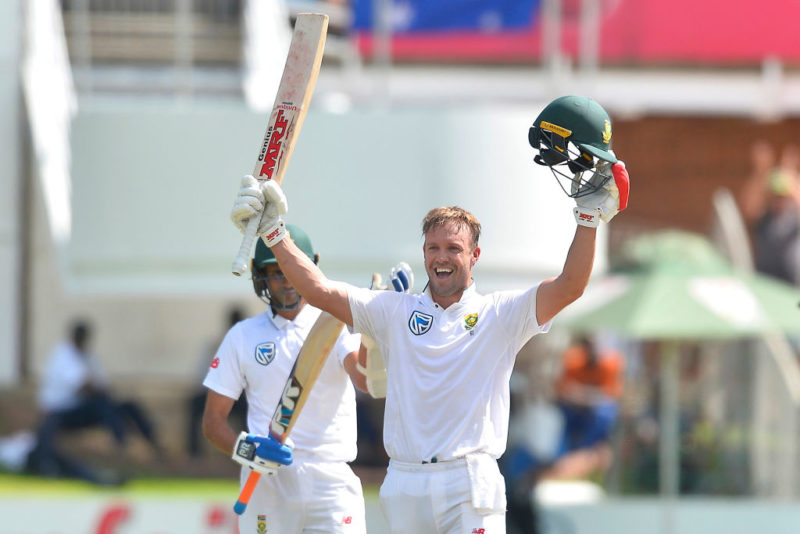
de Villiers struck seven hundreds in his 22 Tests as keeper this decade, compared to six hundreds in 38 games when not keeping
Ravichandran Ashwin
70 Tests, 362 wickets, average 25.36, BBI: 7-59, BBM: 13-140
JH: I think Ashwin is probably the most persuasive [of the spinners] because of his runs.
JS: Ashwin’s cool as well. On the completely subjective, intangible front.
JH: He’s also been tweeting about pollution in India, the fact that something needs to be done, so if we’re looking ahead it’s good to have some environmentally conscious cricketers in our side.
The quality of air in Delhi is really scary, the oxygen we breathe is the basic requisite for mankind on this planet. This indeed is emergency. #AirQualityIndex #pollution
— Ashwin Ravichandran (@ashwinravi99) November 2, 2019
59 Tests, 267 wickets, average 22.29, BBI: 7-51, BBM: 11-60
JS: From an aesthetic and impact point of view, pace like fire and swings it like Jimmy Anderson. First quick on the teamsheet for me.
LB: Yeah I had Steyn, no question for me. The most viscerally thrilling fast bowler of the decade and his stats were just sensational.
PW: Considering it’s part two of his career, to average 22 and a bit per wicket as a quick when you’re tearing in, all around the world. The Nagpur ten-for fell in 2010.
JH: The stats that stood out for me, only Philander and Cummins have better average among quicks to take 100 wickets and only Rabada has a better strike-rate so to combine those two, he is emphatically the best.

Steyn took 7-51 in the India’s first innings during South Africa’s innings victory in Nagpur in 2010
Kagiso Rabada
40 Tests, 183 wickets, average 22.50, BBI: 7-112, BBM: 13-144
PW: Rabada has never let South Africa down in the five years he’s been a Test cricketer, and he’s taken important wickets in big games. Seven of his 12 best spells have come against Australia or England.
JS: Best strike-rate of anyone to have taken over 100 wickets too.
PW: He took 13 at Centurion against England, took six at Hobart when they won by an innings, albeit I think Philander took five for zip. But also I think Rabada is so box office and I think he brings something slightly different. If Steyn and Anderson don’t get you, Rabada will come on and just bulldoze through you.
LB: Thinking about it, if he’s first change the batsmen are really not going to enjoy that, to a greater degree than if Philander was coming on. I think they’d fear for their safety as well as their wicket if Rabada was coming on.
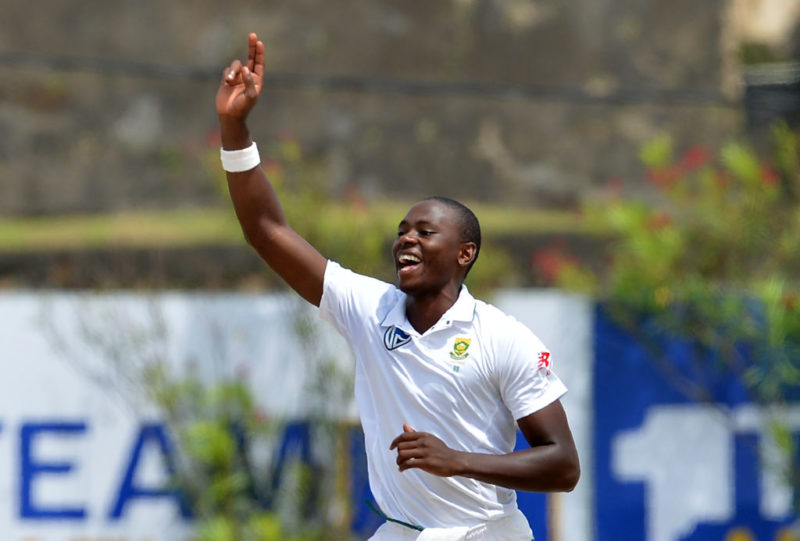
Rabada has taken a wicket almost once every 40 balls in Tests
James Anderson
105 Tests, 427 wickets, average 24.19, BBI: 7-42, BBM: 11-71
PW: I think if you are talking longevity, and I think in fast bowlers that has to be credited more than the batsmen, for Anderson to have played over 100 Tests in just this decade speaks for itself, and obviously the record is outstanding. He averages better in the second half of his career than he does in his first. Across the whole of the decade he averages less than 25. 427 wickets from 105 games this decade, can’t see past that, I think.
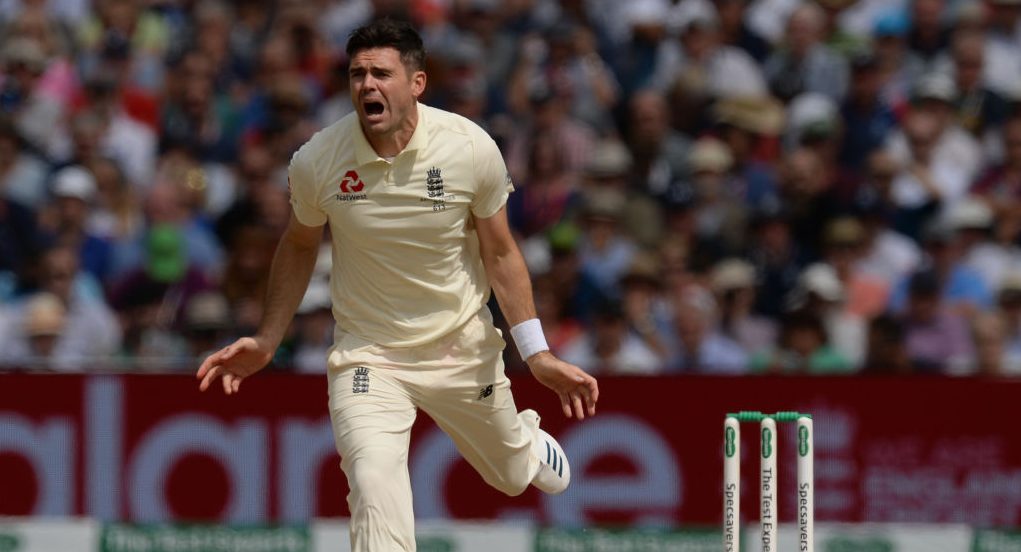
Anderson’s 427 wickets since 2010 is the second highest haul by any bowler in a decade, behind Muralitharan’s 565 wickets between 2000 and 2009
Wisden’s decade in review series is brought to you in association with Perry, designers of distinctive club blazers made in Yorkshire since 1946. Vote in the decade in review readers’ survey.

